Fuel Injector Problems
Are you facing issues with your van’s fuel injector? Don’t worry! We Buy Many Vans is here to help. Sell your van to us today and receive cash for it. Click now to get started!
If you’re a van owner, you probably know that fuel injector problems can be a real headache to deal with. Not only do they affect your van’s performance, but they can also lead to costly repairs and replacements.
However, there is a solution that can save you from all this trouble: selling your van to We Buy Many Vans.
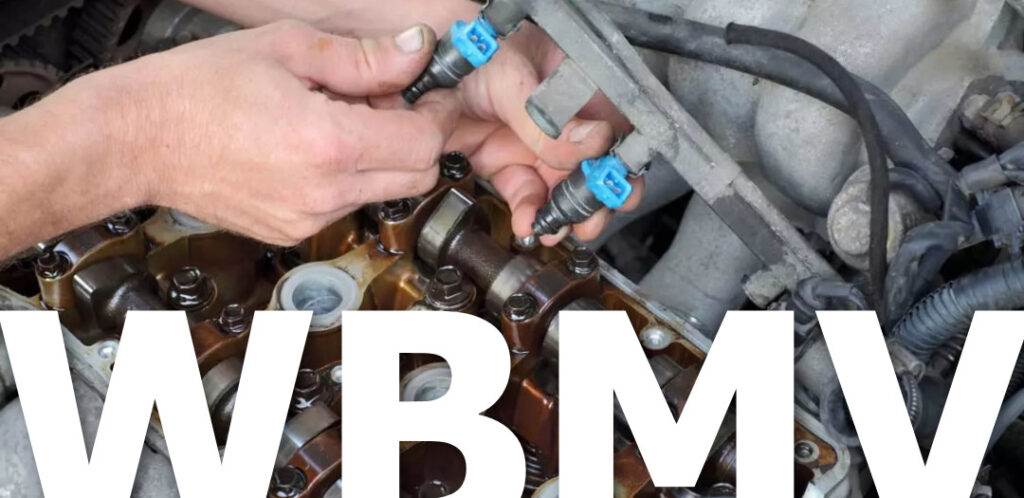
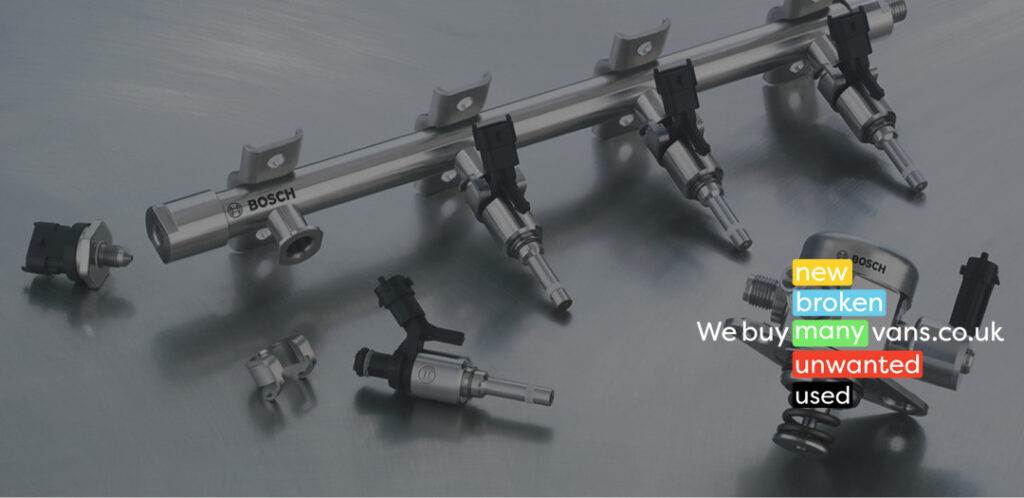
At We Buy Many Vans, we understand the importance of having a reliable vehicle that meets your needs. That’s why we specialise in buying vans of all types and conditions, including those with fuel injector problems.
Whether you have a broken-down van that needs extensive repairs or one that’s still running but has issues with its fuel injectors, we’ll make you an offer based on its value and condition. So if you’re tired of dealing with fuel injector problems and want to sell your van quickly and hassle-free, look no further than We Buy Many Vans.
Understanding Fuel Delivery Systems
A fuel delivery system is a crucial component of any combustion engine that delivers fuel from the fuel tank to the engine cylinders. The system consists of several components, including the fuel pump, fuel filter, fuel injectors, and fuel pressure regulator. The fuel delivery system ensures that the engine receives the correct amount of fuel at the right pressure and time to operate effectively.
Fuel delivery systems are an essential component of modern vehicles. These systems are responsible for supplying fuel from the fuel tank to the engine, where it is burned to power the vehicle. There are two main types of fuel delivery systems: carbureted and fuel-injected.
Carbureted systems were widely used in older vehicles, where a carburetor was responsible for mixing air and fuel in the correct proportions before it was delivered to the engine.
However, fuel-injected systems have largely replaced carbureted systems in modern vehicles.
Fuel injection systems are more efficient, precise, and reliable than carbureted systems, and they produce fewer emissions.
Fuel injection systems are divided into two types: port fuel injection and direct injection. In port fuel injection, fuel is injected into the intake manifold, where it mixes with air before entering the engine cylinders. In direct injection, fuel is injected directly into the engine cylinders, which allows for more precise fuel delivery and better engine performance.
Modern fuel delivery systems use electronic controls to regulate fuel flow and pressure, ensuring that the engine receives the correct amount of fuel for optimal performance. Fuel pumps, fuel filters, fuel injectors, and fuel pressure regulators are some of the components that make up a fuel delivery system. Regular maintenance and inspection of these components can help prevent issues with fuel delivery and ensure optimal engine performance.
Common Signs Of Fuel Injector Issues
After understanding how fuel delivery systems work, it’s important to recognise common signs of fuel injector issues.
Common Van Faults: Fuel injectors are an integral part of an engine’s fuel delivery system, and when they go bad, it can affect the engine’s performance. Here are the common symptoms of bad fuel injectors and what they mean:
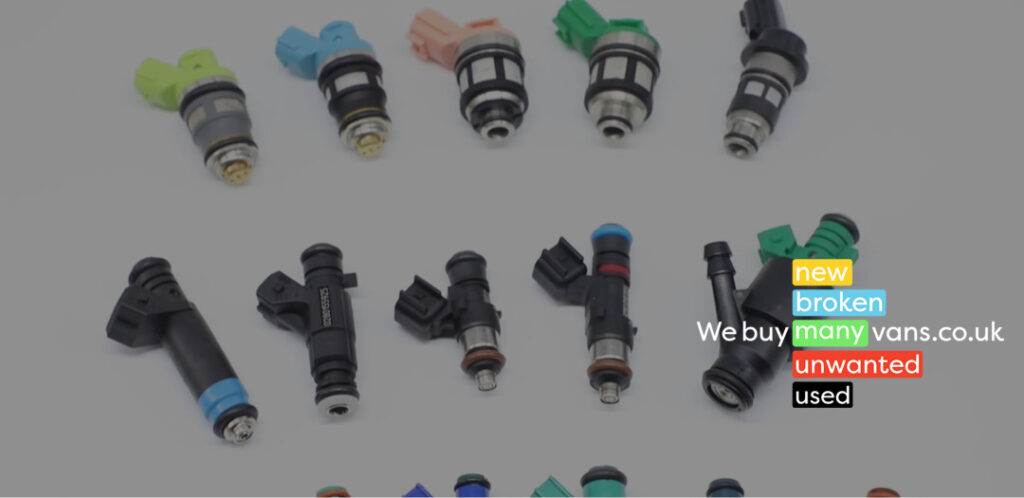
Rough Idle: A rough idle occurs when the engine feels like it’s shaking or vibrating when running. This can be caused by clogged fuel injectors, dirty air filters, or worn-out spark plugs. It can lead to decreased fuel efficiency and increased emissions.
Misfire: A misfire happens when the engine stutters or hesitates, particularly when accelerating. It’s usually a sign that the fuel injector isn’t providing enough fuel to the engine, which can cause damage to the engine and exhaust system.
Poor Engine Performance: Poor engine performance is characterised by a lack of power or reduced acceleration. This can be caused by clogged fuel injectors, a faulty fuel pump, or a malfunctioning engine control unit (ECU). It can also lead to decreased fuel economy and increased emissions.
Decreased Fuel Economy: Decreased fuel economy occurs when the engine consumes more fuel than usual. It can be caused by clogged fuel injectors, a malfunctioning ECU, or a faulty oxygen sensor. This can lead to higher fuel costs and increased emissions.
Check Engine Light: The check engine light on the dashboard can be a sign of a bad fuel injector. It could also indicate other engine problems such as a malfunctioning ECU or oxygen sensor.
Smell of Fuel: A strong smell of gasoline may be present around the engine or exhaust, indicating a fuel leak caused by a bad fuel injector. This can be dangerous and needs to be addressed immediately.
Engine Problems: Engine problems can range from overheating to stalling. Bad fuel injectors can cause issues such as reduced engine performance, increased emissions, and damage to the engine and exhaust system. It’s essential to have these issues addressed as soon as possible to prevent further damage.
If you’re experiencing any of these symptoms, it’s important to have your vehicle inspected by a qualified mechanic. And if you’re looking to sell your van, We Buy Many Vans and are willing to purchase yours from you.
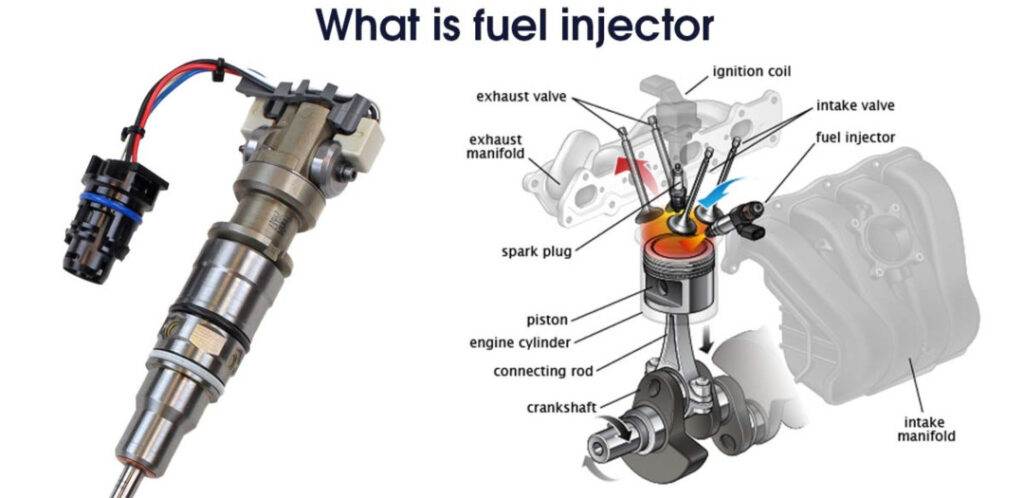
Causes of Fuel Injector Symptoms & Problems
Fuel injectors are an essential component of modern combustion engines. However, fuel injectors can develop problems that can affect the engine’s performance, fuel economy, and emissions. Here are some of the most common causes of fuel injector problems:
Clogged Injectors: Fuel injectors can become clogged due to the accumulation of debris or dirt, leading to a reduction in fuel delivery accuracy and efficiency.
Dirty Fuel: Using contaminated or low-quality fuel can cause fuel injectors to clog or malfunction, leading to various engine problems.
Faulty Injectors: Injectors can become faulty due to age or wear and tear, leading to a reduction in fuel delivery accuracy and efficiency.
Fuel Leak: A leak in the fuel injector can cause fuel to escape into the engine or surrounding areas, leading to various engine problems such as reduced power, engine misfires, and decreased fuel economy.
Malfunctioning Engine Control Unit (ECU): The ECU controls the fuel injectors’ operation and can malfunction due to various reasons, such as electrical issues, affecting the injectors’ performance. In such cases, the fuel injectors may not receive the right signal to deliver fuel accurately, leading to engine problems.
Sell Your Van In Three Easy Steps
Hassle-Free Selling Process
01.
Get a quote
02.
Schedule a pickup
03.
Get paid
Solutions to Fuel Injector Problems
Fuel Injector Problems Several solutions can be applied to fuel injector problems, depending on the root cause.
Here are some of the most common solutions:
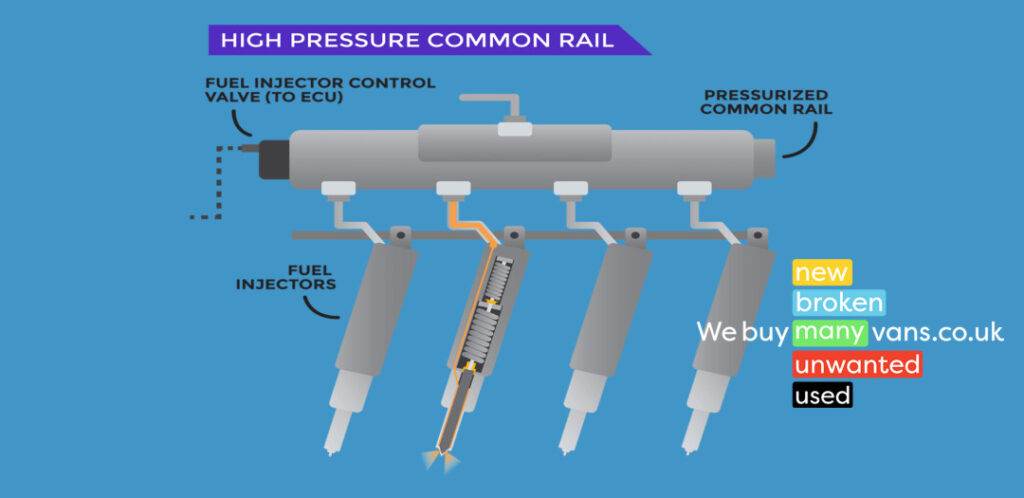
Fuel Injector Cleaning: A professional fuel injector cleaning service can help remove dirt, debris, and other contaminants from clogged fuel injectors, restoring their performance. The service usually involves using specialized cleaning solutions to flush the injectors thoroughly. It’s essential to have the cleaning done by a certified mechanic or professional to avoid damaging the injectors or other engine components.
Use High-Quality Fuel: Using high-quality fuel can prevent fuel injector problems such as clogging, as it contains fewer impurities than low-quality fuel. High-quality fuel also contains additives that help clean the fuel system, including the injectors, leading to better engine performance and increased fuel economy.
Replace Faulty Injectors: Fuel injectors that are damaged or faulty may need to be replaced entirely to restore the engine’s performance. This may involve replacing a single injector or all the injectors, depending on the extent of the damage. It’s important to have the replacement done by a certified mechanic or professional to ensure that the new injectors are installed correctly and functioning properly.
Fix Fuel Leaks: A fuel leak can cause fuel to escape into the engine or surrounding areas, leading to various issues such as poor engine performance and reduced fuel economy. The leak can be fixed by replacing damaged or worn-out parts, such as the fuel injector O-rings or fuel lines, or tightening loose connections.
Repair or Replace the ECU: The engine control unit (ECU) controls the fuel injectors’ operation and can malfunction due to various reasons, affecting the injectors’ performance. If the ECU is faulty, it may need to be repaired or replaced to restore fuel injector performance. A certified mechanic or professional can diagnose the issue and recommend the appropriate solution.
Fuel injector problems can significantly impact engine performance, fuel economy, and emissions. Understanding the common causes and symptoms of fuel injector problems can help you identify and resolve issues before they become severe. Regular maintenance, including fuel injector cleaning and using high-quality fuel, can prevent many fuel injector problems, ensuring optimal engine performance and longevity.
Fuel Additives: Do They Really Work?
In recent years, fuel additives have become increasingly popular in the UK market. Fuel additives are chemicals that are added to fuel to enhance its performance or properties, such as improving fuel efficiency, reducing emissions, and preventing engine deposits. However, there is a lot of debate surrounding whether fuel additives actually work, or if they are just a marketing gimmick.
To understand whether fuel additives are effective, it’s important to consider the specific types of additives and their intended uses. For example, some fuel additives claim to improve fuel economy by reducing friction and wear on engine components, while others are designed to clean and protect the fuel system. There are also additives that claim to boost octane levels, improve acceleration, or reduce harmful emissions.
While some fuel additives have been shown to provide benefits in certain situations, the effectiveness of these products can vary depending on factors such as the type of fuel being used, the age and condition of the vehicle, and driving habits. Additionally, not all fuel additives are created equal, and some may contain harmful or ineffective ingredients.
When considering using fuel additives, it’s important to do your research and choose a product that is backed by scientific evidence and has been tested by reputable organizations. It’s also important to follow the manufacturer’s instructions carefully and not exceed recommended doses.
In conclusion, while some fuel additives can provide benefits in certain situations, there is no one-size-fits-all solution. The effectiveness of fuel additives can vary depending on a variety of factors, and it’s important to choose a product that is proven to work and safe for use in your vehicle.
The Risks Of Ignoring Fuel Injector Problems
Fuel injectors play a vital role in the proper functioning of a vehicle’s engine, and ignoring fuel injector problems can lead to a range of issues. Here are some of the main risks of ignoring fuel injector problems:
Decreased Performance and Fuel Efficiency
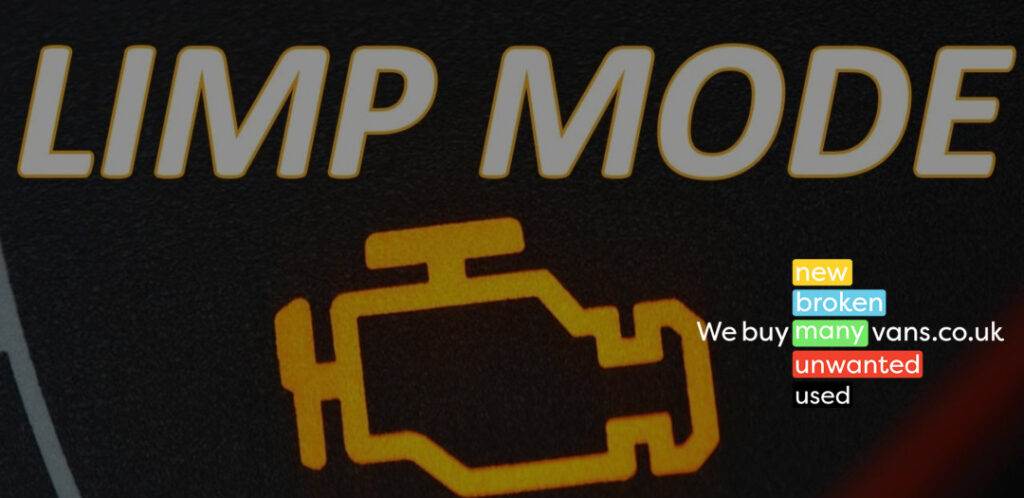
Fuel injectors are responsible for delivering precise amounts of fuel to the engine for combustion. When fuel injectors become clogged or damaged, they can no longer provide an accurate flow of fuel, which can result in decreased performance and fuel efficiency.
Ignoring fuel injector problems can cause your vehicle to run poorly, leading to increased fuel consumption and reduced power.
Engine Damage
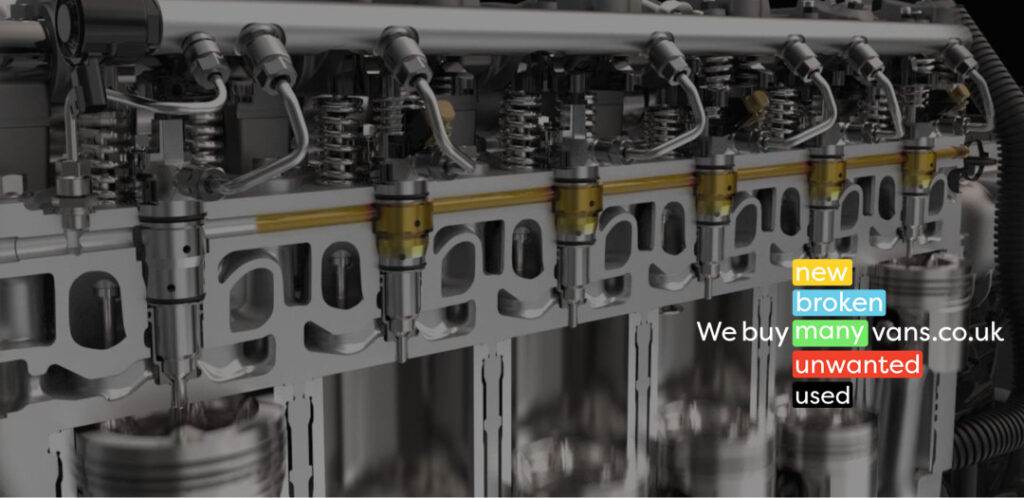
Clogged or damaged fuel injectors can cause the engine to run lean, meaning there is not enough fuel to support combustion. This can result in increased exhaust temperatures, which can cause damage to the engine’s components, including the cylinder walls, pistons, and valves.
Over time, ignoring fuel injector problems can lead to catastrophic engine failure and expensive repairs.
Increased Emissions
Fuel injectors that are not functioning properly can also lead to increased emissions. When fuel is not burned efficiently, it can lead to the production of harmful pollutants such as carbon monoxide, nitrogen oxides, and particulate matter. In addition to being harmful to the environment, increased emissions can also result in a failed emissions test, which can prevent your vehicle from passing inspection and being legally driven on the road.
In conclusion, ignoring fuel injector problems can have serious consequences for your vehicle’s performance, fuel efficiency, and emissions. Regular maintenance and inspection of your fuel injectors can help prevent these issues and keep your vehicle running smoothly. If you notice any symptoms of fuel injector problems, such as decreased performance or fuel efficiency, it’s important to have them addressed by a qualified mechanic to prevent further damage to your engine.
However, If you’re thinking of selling your van, there are several companies and dealerships that specialise in buying vans. We Buy Many Vans is a reputable company that offers competitive prices for your vehicle. It’s crucial to conduct your research and find a trustworthy buyer who will offer you a fair price for your van. Remember to gather all the essential paperwork and documents, such as the title, registration, and maintenance records, to ensure a smooth transaction.
Fuel Injector Cleaning: DIY Vs Professional Services
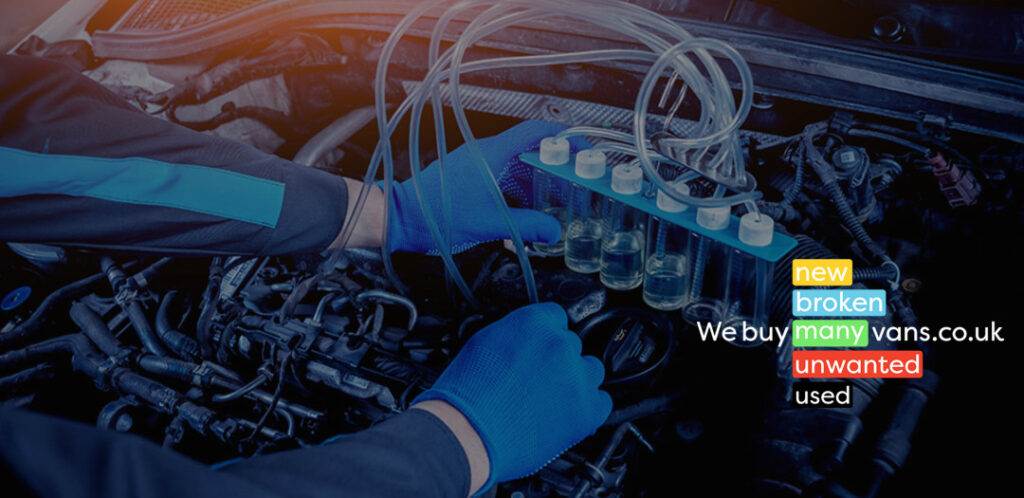
When faced with fuel injector problems in your van, it’s crucial to recognize the signs of bad fuel injectors. These can include a decrease in fuel efficiency, engine misfires, and a rough idle. If you notice any of these issues, it’s possible that your van has a faulty fuel injector or a clog in the fuel system.
One solution to this problem is fuel injector cleaning, which can be done through DIY methods or by using a professional injector cleaning service.
DIY methods involve using fuel injector cleaning kits that can be purchased at most auto parts stores. However, if you’re not comfortable working on your van yourself, it may be best to seek out a professional service.
Although DIY methods may seem more cost-effective, they may not always be the best solution. If there is significant damage to the fuel injectors, it may be necessary to replace them entirely. In this case, seeking out a professional service can save you time and money in the long run. Additionally, some services offer warranties on their work which can provide peace of mind for future driving experiences.
It’s essential to do your research and find a reliable and reputable injector cleaning service in your area. They will have the necessary equipment and expertise to clean or replace the fuel injectors effectively. By choosing a professional service, you can ensure that your van runs smoothly and efficiently, ultimately saving you money on fuel costs in the long term.
To Replace A Fuel Injector
Fuel injector problems can be a headache for vehicle owners. These problems can manifest in various ways, such as clogs and misfires. If you’re experiencing any of these symptoms of bad fuel injectors, it’s essential to take action quickly before the problem worsens.
One potential solution is to replace the fuel injectors entirely. Replacing fuel injectors is not an easy task, but it’s doable with some basic knowledge and tools. If you’ve determined that the problem lies with your fuel injector, replacing it entirely may be the best solution.
Here’s a step-by-step guide on how to replace a fuel injector:
Gather the necessary tools and equipment. You’ll need a set of wrenches, a fuel pressure gauge, a new fuel injector, and a fuel injector O-ring kit.
Relieve the fuel system pressure. You can do this by removing the fuel pump fuse or relay and cranking the engine until it stalls. Then, disconnect the negative battery cable.
Locate the fuel injector you want to replace. Fuel injectors are typically located in the engine’s intake manifold.
Disconnect the fuel injector electrical connector. You may need to use a small screwdriver or pliers to help release the connector.
Remove the fuel rail. The fuel rail is typically held in place by bolts or clips. Be sure to have a rag handy to catch any fuel that may leak out.
Remove the old fuel injector. You may need to use a special tool or pry gently to get it out.
Install the new fuel injector. Make sure the O-ring is properly lubricated and in place before inserting the new injector.
Reassemble the fuel rail and reconnect the electrical connector.
Reconnect the negative battery cable.
Test the fuel system for leaks and proper pressure before starting the engine. You can use the fuel pressure gauge to do this.
That’s it! With these steps, you should be able to replace a fuel injector. However, it’s always a good idea to consult a repair manual or seek the help of a professional if you’re unsure about any step of the process.
The Benefits Of Regular Maintenance For Your Van's Fuel System
Regular maintenance for your van’s fuel system can bring a number of benefits, including:
Improved fuel efficiency: Over time, dirt and debris can build up in your van’s fuel system, causing it to work harder and burn more fuel. Regular maintenance, such as fuel injector cleaning and air filter replacement, can help keep your van running efficiently and save you money on gas.
Increased engine performance: A clean fuel system ensures that your van’s engine is receiving the right amount of fuel and air. This can result in better acceleration, smoother idling, and overall improved engine performance.
Prevention of costly repairs: Neglecting your van’s fuel system can lead to more serious issues down the line, such as clogged fuel lines or damaged fuel injectors. Regular maintenance can help catch these issues early on, before they become expensive repairs.
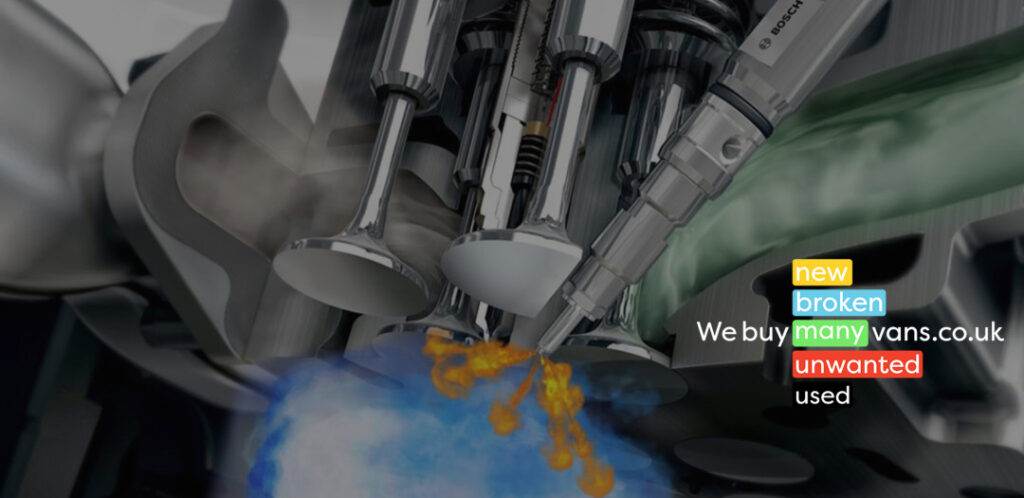
Extended lifespan of your van: A well-maintained fuel system can help extend the lifespan of your van’s engine. By keeping the fuel system clean and running smoothly, you can avoid unnecessary wear and tear on engine components.
Improved safety: A poorly maintained fuel system can cause issues such as stalling, misfires, or even engine fires. Regular maintenance can help prevent these issues and ensure the safety of you and your passengers.
In summary, regular maintenance for your van’s fuel system is important for improving fuel efficiency, increasing engine performance, preventing costly repairs, extending the lifespan of your van, and improving safety. It’s a worthwhile investment that can save you money and keep you and your van on the road for years to come.
Maximising Fuel Efficiency: Tips And Tricks For Van Owners

If you’re a van owner, you know how important it is to keep your vehicle running smoothly. One of the biggest problems that can arise is fuel injector issues. Symptoms of bad fuel injectors include clogs, misfires, and rough idling. But don’t fret! There are ways to combat this issue and keep your van running like new.
Here are some tips and tricks for van owners looking to maximise their fuel efficiency:
Keep your tires properly inflated: Low tire pressure can cause your van to use more fuel, so make sure to check your tire pressure regularly and keep them inflated to the recommended level.
Use cruise control on the motorway: When driving on the motorway, using cruise control can help you maintain a consistent speed and avoid unnecessary acceleration and deceleration, which can improve your fuel efficiency.
Avoid excessive idling: Idling for long periods of time wastes fuel, so try to turn off your engine when you’re parked or waiting in traffic for an extended period of time.
Keep your van well-maintained: Regular maintenance such as oil changes, air filter replacements, and tune-ups can help keep your van running efficiently and improve your fuel economy.
Drive at a steady pace: Accelerating and braking too frequently can lower your fuel efficiency, so try to drive at a steady pace whenever possible.
Avoid carrying unnecessary weight: The more weight your van carries, the more fuel it will use, so try to avoid carrying unnecessary items in your van.
Plan your routes carefully: Avoiding traffic and taking the most direct route can help you save time and fuel, so plan your routes carefully before heading out.
By following these tips and tricks, you can help maximise your van’s fuel efficiency.
Remember to stay vigilant in monitoring your vehicle’s performance to catch any potential issues before they become major problems.
The key takeaway here is that taking care of your van is crucial for both financial reasons and ensuring safety on the road. Fuel injector problems may seem daunting but with proper maintenance and care, they can be easily prevented or remedied. Don’t wait until it’s too late – start implementing these tips today!
Fuel Injector Problems Frequently Asked Questions
Common symptoms of a fuel injector problem include rough idling, reduced engine performance, poor fuel efficiency, engine misfires, and an illuminated check engine light. If you experience any of these symptoms, it’s best to have your vehicle checked by a mechanic to diagnose the issue.
Fuel injectors should be cleaned as part of a regular maintenance schedule, typically every 30,000 to 60,000 miles. However, if you experience symptoms of a fuel injector problem, such as reduced engine performance, it may be necessary to clean the fuel injectors sooner.
In many cases, fuel injector problems can be repaired, such as cleaning or replacing a clogged injector. However, if the injector is severely damaged or worn, it may need to be replaced. A qualified mechanic can diagnose the issue and recommend the best course of action.
Fuel injectors can fail due to a variety of reasons, including clogging from dirt or debris, wear and tear over time, electrical problems, low-quality fuel, overuse, or incorrect installation. Regular maintenance, such as cleaning and replacing fuel injectors as needed, can help prevent these issues and keep your engine running smoothly.
Yes, using low-quality fuel can damage fuel injectors over time. Low-quality fuel may contain impurities such as dirt, water, or other contaminants that can clog or damage the fuel injectors. Additionally, some low-quality fuels may not have the proper additives to keep the fuel injectors clean and functioning properly. It’s important to use high-quality fuel from a reputable supplier to ensure optimal engine performance and prevent fuel injector problems.
Sell Your Van Today to We Buy Many Vans
So, if you’re experiencing fuel injector problems with your van, it’s important to take action sooner rather than later. Common causes of fuel injector issues include dirty fuel, low-quality gasoline, and wear and tear over time. Regular maintenance can help prevent these issues from arising in the first place.
If you do end up needing to replace a faulty fuel injector, the cost can vary depending on the make and model of your van. However, it’s crucial not to ignore the problem and continue driving with a faulty injector. Doing so could lead to long-term consequences such as decreased fuel efficiency and engine damage.
At We Buy Many Vans, we understand how frustrating it can be to deal with vehicle problems like these. That’s why we offer a hassle-free way to sell your van quickly and easily – even if it has fuel injector issues or other mechanical problems. Get in touch today to find out more!
Van Troubleshooting Guide: Common Problems from Fuel Pumps to MOT Failures
Here’s the list of van problems in order from most common to least common:
- Fuel Pump Problems
- ECU Problems
- Fuel Injector Problems
- Turbo Engine Problems
- DPF Problems
- Wiring Loom Problems
- Oil Pressure Problems
- Differential Problems
- MOT Failure Vans
- Timing Chain Problems
- Engine Warning Light
- Gearbox Failure
Please note that the order may vary depending on various factors such as the specific van model, maintenance practices, and driving conditions. This list is a general representation of common van problems but may not reflect the exact frequency of occurrence in all cases.